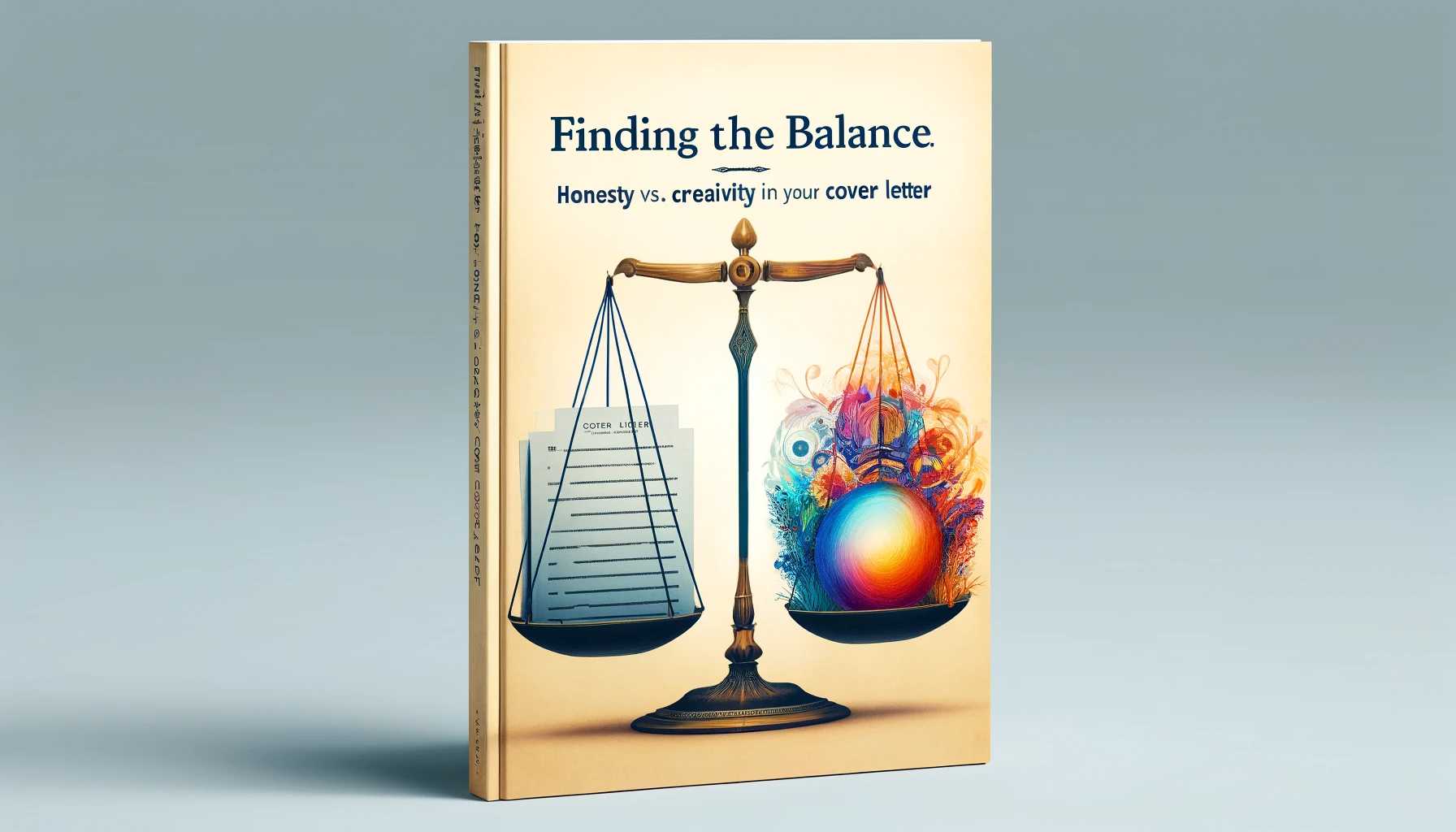Finding the Balance: Honesty vs. Creativity in Your Cover Letter
Hey there, job seekers! Are you staring at a blank screen, wondering how to craft the perfect cover letter? Well, you're not alone. The cover letter can be a tricky beast – on one hand, you want to be honest and authentic, but on the other hand, you also want to stand out and impress the hiring manager with your creativity. So, how do you strike the right balance between honesty and creativity? Let's dive in and find out!
The Importance of Authenticity:
1. First things first – let's talk about honesty and authenticity. Your cover letter is your chance to introduce yourself to the hiring manager and showcase your personality, skills, and qualifications. But here's the thing: honesty should always be your guiding principle. It's important to be genuine and authentic in your cover letter, because ultimately, you want to find a job that's the right fit for you.
Telling Your Story:
2. Your cover letter is more than just a laundry list of your accomplishments – it's a narrative that tells your story and highlights what makes you unique. Take this opportunity to share your passion for the industry, your career goals, and the experiences that have shaped you as a professional. By weaving together personal anecdotes and professional achievements, you can create a compelling narrative that sets you apart from the crowd.
The Power of Creativity:
3. While honesty is crucial, creativity can also play a key role in making your cover letter stand out. Think of your cover letter as a blank canvas – it's your chance to showcase your creativity and imagination in a way that grabs the hiring manager's attention and makes them want to learn more about you. Whether it's through a clever opening line, a unique formatting style, or a creative storytelling approach, injecting a dose of creativity into your cover letter can help you make a memorable impression.
Showcasing Your Skills:
4. Creativity isn't just about flashy gimmicks – it's also about showcasing your skills and abilities in a way that's engaging and memorable. For example, if you're applying for a marketing role, you could demonstrate your creativity by crafting a visually appealing cover letter with eye-catching graphics and compelling copy. If you're a graphic designer, you could showcase your design skills by incorporating innovative layouts and typography into your cover letter. The key is to find creative ways to highlight your strengths and demonstrate why you're the perfect candidate for the job.
Tailoring Your Approach:
5. When it comes to balancing honesty and creativity in your cover letter, it's important to tailor your approach to the company and the role you're applying for. Take the time to research the company's culture, values, and mission statement, and tailor your cover letter to align with what they're looking for. If the company values creativity and innovation, then by all means, let your creative flag fly. But if they're more traditional and conservative, then it's best to focus on presenting yourself in a professional and polished manner.
Avoiding Over-the-Top Gimmicks:
6. While creativity is important, it's also important to strike the right balance and avoid going overboard with gimmicks and stunts. Remember, the goal of your cover letter is to showcase your qualifications and convince the hiring manager that you're the right person for the job – not to impress them with flashy gimmicks or attention-grabbing antics. Keep your creativity focused and relevant to the role you're applying for, and avoid anything that feels forced or gimmicky.
Finding Your Unique Voice:
7. At the end of the day, the most important thing is to find your unique voice and let it shine through in your cover letter. Whether you're witty and irreverent or thoughtful and introspective, embrace what makes you unique and use it to your advantage. Your cover letter should reflect who you are as a person and a professional, so don't be afraid to let your personality shine through.
Seeking Feedback:
8. Once you've drafted your cover letter, don't be afraid to seek feedback from friends, family members, or trusted mentors. They can offer valuable insights and suggestions to help you fine-tune your cover letter and ensure that it strikes the right balance between honesty and creativity. Just remember to take their feedback with a grain of salt and trust your instincts – after all, no one knows you better than you do.
The Bottom Line:
9. In the eternal struggle between honesty and creativity, there's no one-size-fits-all answer. The key is to strike the right balance and find a cover letter style that feels authentic to you while also grabbing the hiring manager's attention. So, go ahead and let your creativity run wild – just remember to keep it grounded in honesty and authenticity, and you'll be well on your way to crafting a cover letter that gets you noticed for all the right reasons.
Closing Thoughts:
As you embark on your cover letter writing journey, remember that there's no magic formula for success. It's okay to experiment with different approaches and find what works best for you. Ultimately, your cover letter should be a reflection of who you are as a person and a professional – so don't be afraid to let your personality shine through. With a healthy dose of honesty, a sprinkle of creativity, and a dash of confidence, you'll be well-equipped to craft a cover letter that lands you your dream job. Happy writing!









